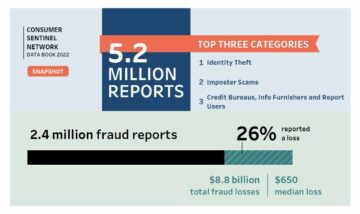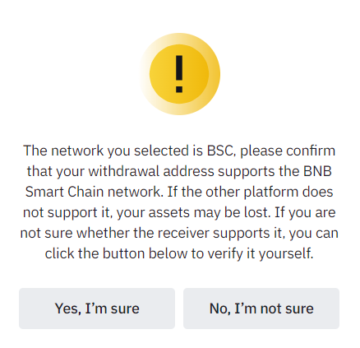
Given that the United States has some of the highest adoption rates of cryptocurrency in the world, the rulings of the IRS are often followed by local taxation entities in other countries. According to the IRS, cryptocurrency is considered a capital asset, like property.
What this means is that any crypto gains or losses need to be treated as a taxable event. In crypto trading, this is deemed a capital loss or a capital gain, based on whether or not you profited from the event. On the other hand, any cryptocurrency earned from staking, mining, or airdrops is treated as income and is subject to income tax. This includes any crypto acquired from network hard forks, as we saw during the Ethereum Merge.
Not All Cryptocurrency Transactions Are Taxable
If you’re looking at your wallet history and starting to panic, don’t worry! Some crypto transactions don’t need to be registered on your tax filing. These common activities are not treated as taxable events by the IRS:
- Purchasing virtual currency like Bitcoin or ETH using fiat currency.
- Moving crypto between your own wallets.
- Donating cryptocurrency for charitable reasons.
- Offering crypto to others as a gift.
Any crypto gifting under the value of $15,000 typically has no tax implications for the gifter. However if the receiver chooses to sell the gift, that will be considered a taxable event. It’s essential to keep records of the asset’s fair market value and the gifter’s purchase price. This is also called a cost basis.
Donating crypto to a charity is a great way to spread goodwill and makes the donor eligible for a tax deduction. This deduction is typically equal to the fair market value of the capital asset at the time of the donation.
Crypto Tax Brackets
Apart from the few exceptions listed above, most transactions, whether on a cryptocurrency exchange or in DeFi and NFTs, are taxable events. These include, but are not limited to :
- Selling crypto for fiat currency or trading one virtual currency for another.
- Paying for goods and services using cryptocurrency.
- Earning crypto through mining, staking or airdrops.
- Getting your income paid for in cryptocurrency.
Like in traditional taxation and finance, the amount of crypto tax you’re required to pay depends on how much you’ve gained through income or capital gains. For assets that you’ve held for less than one year, short term capital gains or losses will apply. If you’ve HODLed for over one year, your assets will be treated as long-term capital gains.
Your tax bracket is determined by your overall income, with different rates applied depending on whether each taxable event is considered a long-term or short-term holding period. To give you an idea of what you can expect, TurboTax provides a helpful chart outlining the different brackets.
- SEO Powered Content & PR Distribution. Get Amplified Today.
- Platoblockchain. Web3 Metaverse Intelligence. Knowledge Amplified. Access Here.
- Source: https://dailycoin.com/crypto-tax-basics-before-buying-first-cryptocurrency/
- 000
- a
- above
- According
- acquired
- activities
- Adoption
- Airdrops
- All
- amount
- and
- Another
- applied
- Apply
- asset
- Assets
- based
- Basics
- basis
- before
- between
- Bitcoin
- Buying
- called
- capital
- Charity
- Chart
- Common
- considered
- Cost
- cost basis
- countries
- crypto
- Crypto Tax
- crypto trading
- crypto transactions
- cryptocurrency
- Cryptocurrency Exchange
- Currency
- DeFi
- Depending
- depends
- determined
- different
- donation
- Dont
- during
- each
- earned
- eligible
- entities
- essential
- ETH
- Event
- events
- exchange
- expect
- external
- fair
- few
- Fiat
- Fiat currency
- Filing
- finance
- First
- follow
- followed
- Forks
- from
- Gain
- Gains
- gift
- Give
- goods
- Goodwill
- great
- Hard
- Held
- helpful
- highest
- history
- holding
- How
- However
- HTTPS
- idea
- implications
- in
- In other
- include
- includes
- Income
- income tax
- internal
- Intuit
- IRS
- Keep
- Know
- Limited
- Listed
- local
- long-term
- looking
- loss
- losses
- MAKES
- Market
- means
- Mining
- most
- Need
- network
- NFTs
- ONE
- Other
- Others
- overall
- own
- paid
- Panic
- Pay
- period
- plato
- Plato Data Intelligence
- PlatoData
- price
- property
- provides
- purchase
- Rates
- reasons
- records
- registered
- required
- sell
- Services
- Short
- short-term
- some
- spread
- Staking
- Starting
- States
- subject
- tax
- taxable
- Taxation
- The
- The Capital
- the world
- Through
- time
- to
- Trading
- traditional
- Transactions
- typically
- under
- value
- Virtual
- virtual currency
- Wallet
- Wallets
- What
- whether
- will
- world
- year
- Your
- zephyrnet












